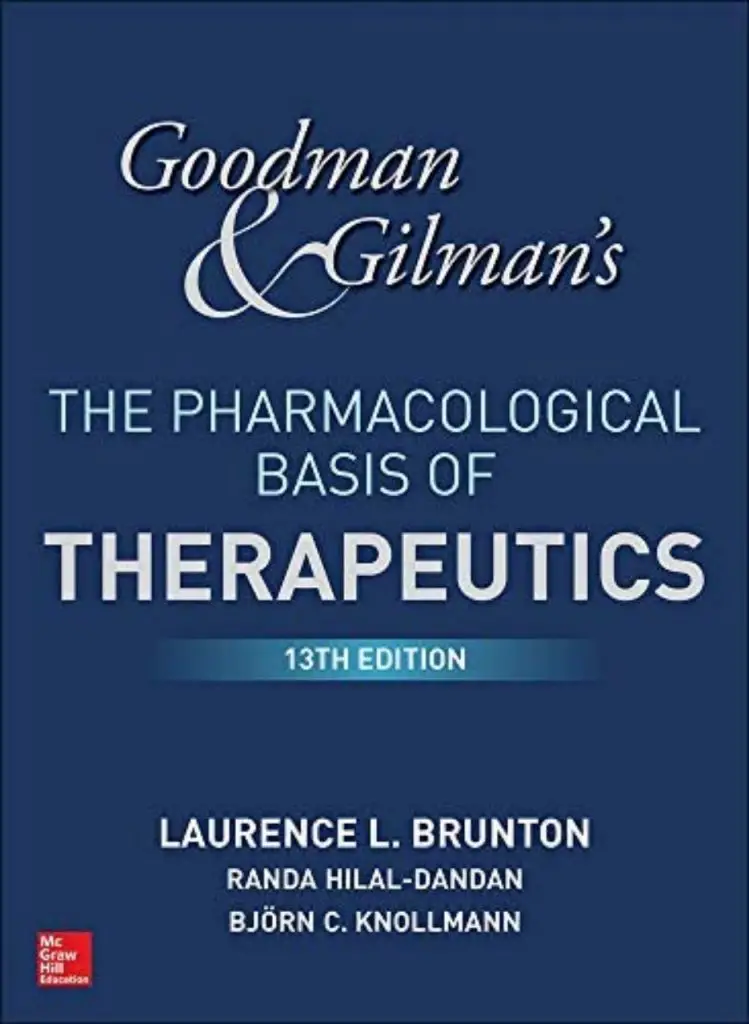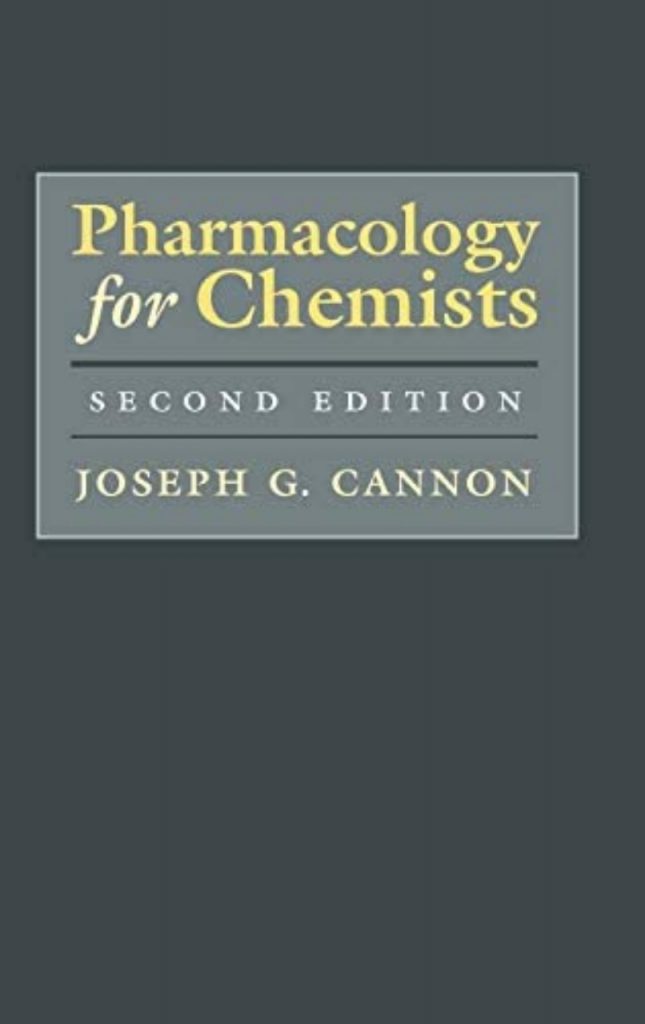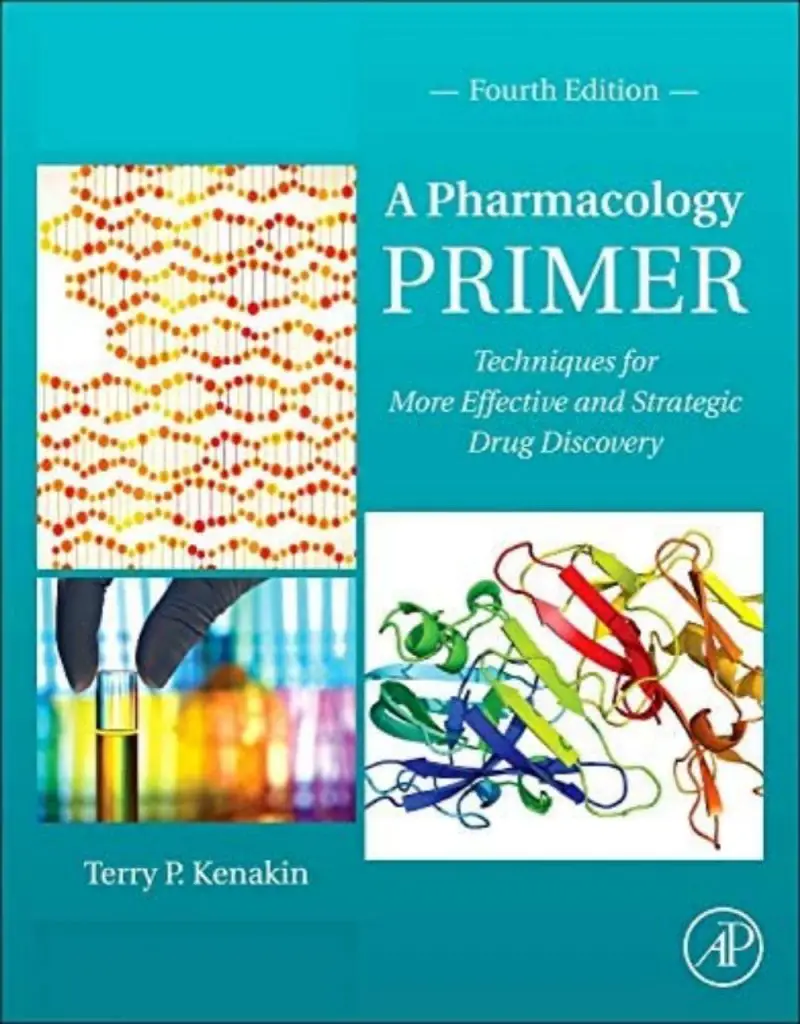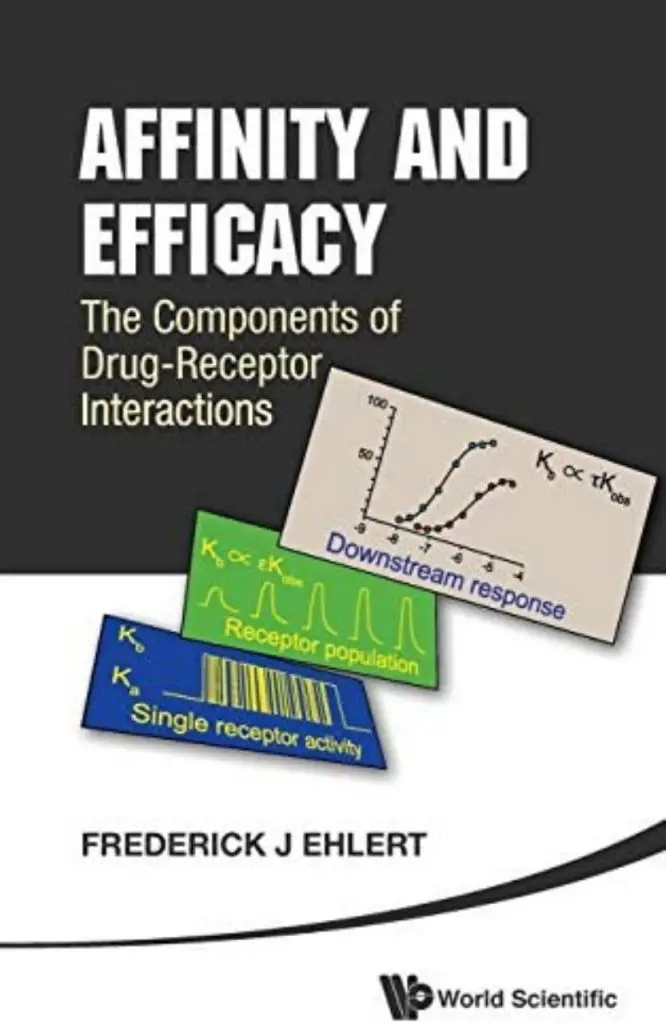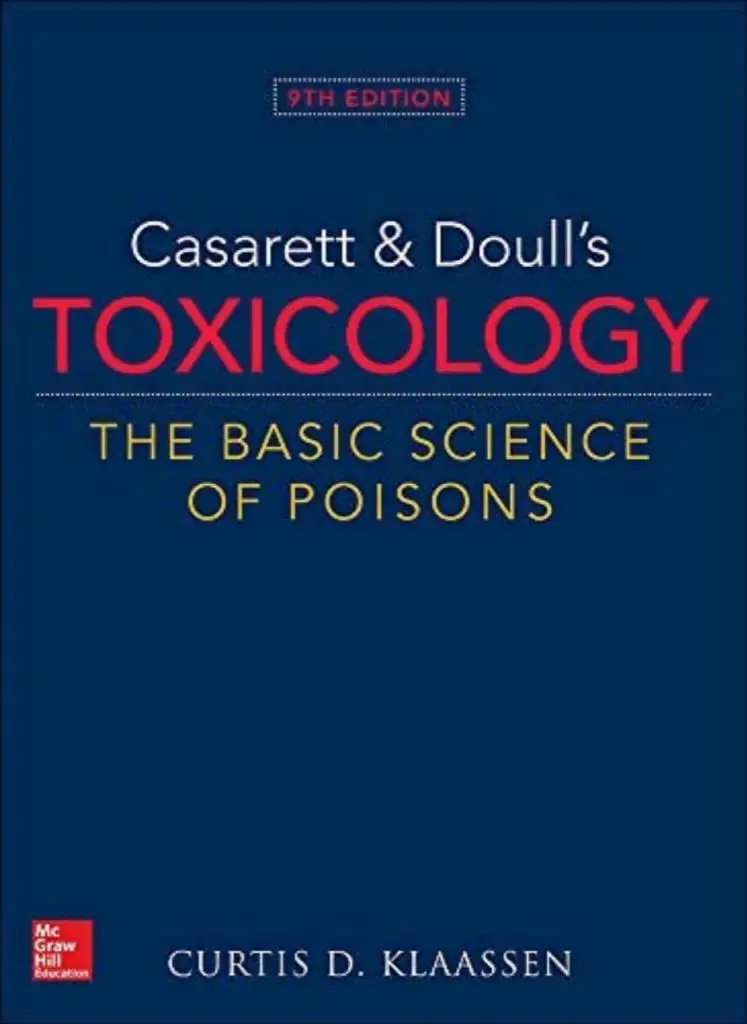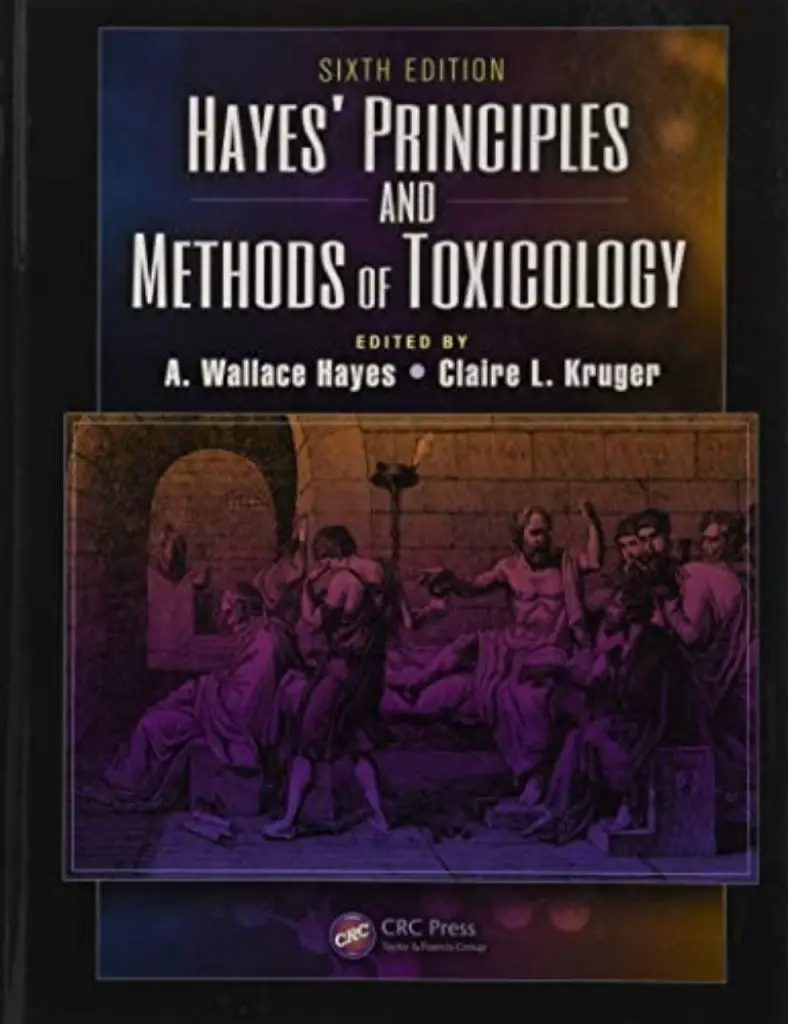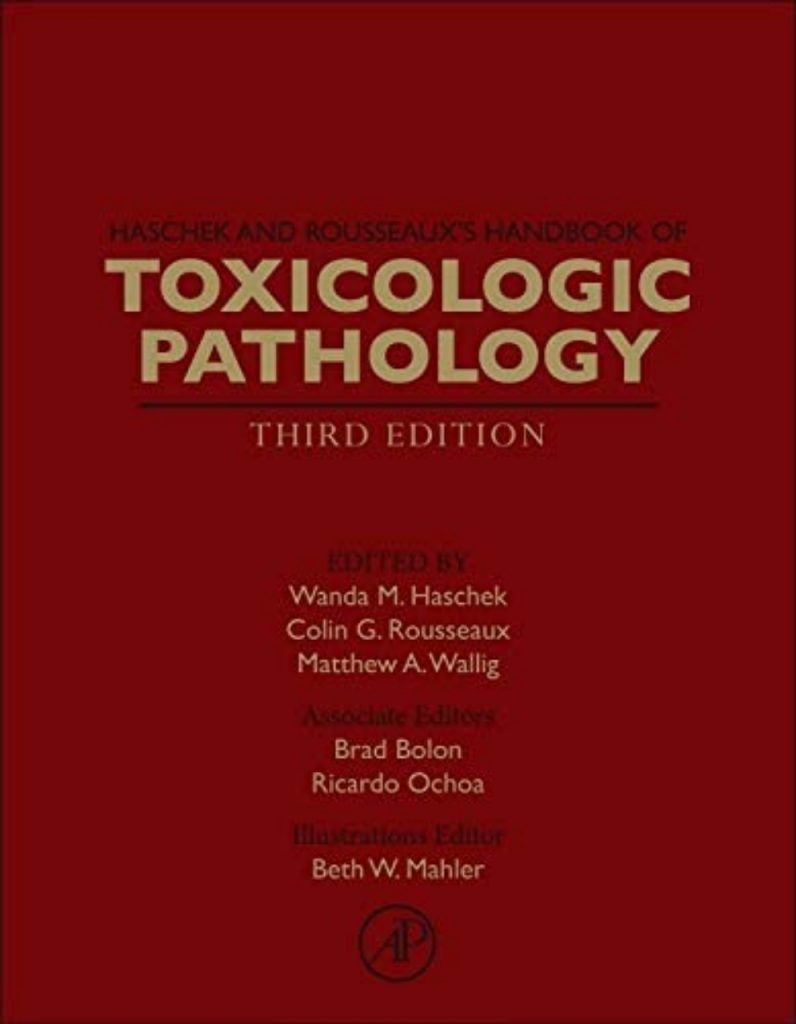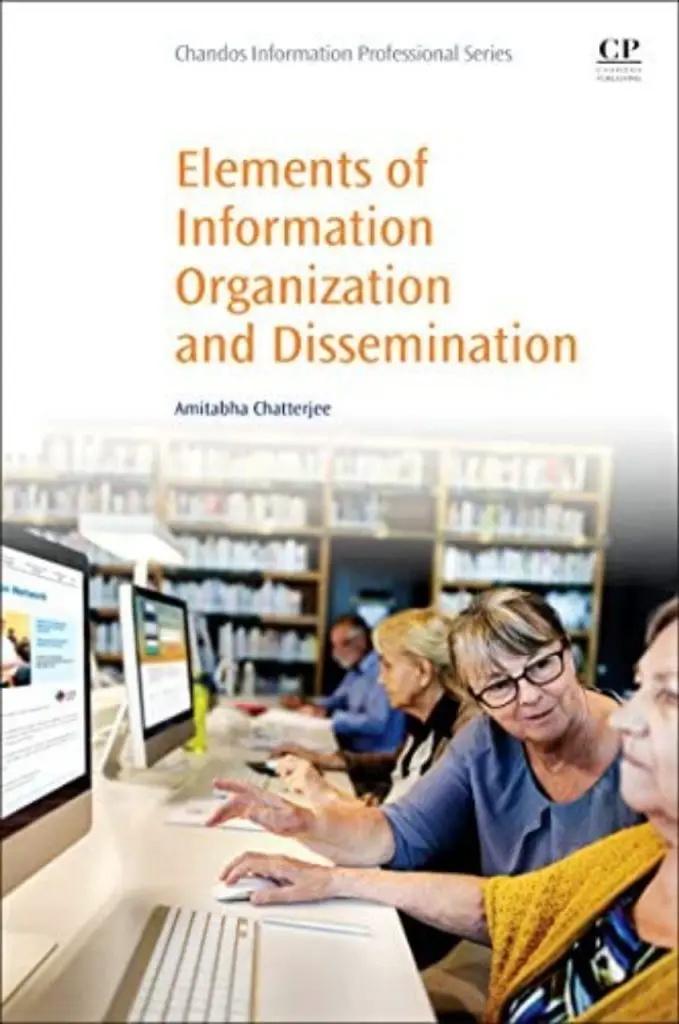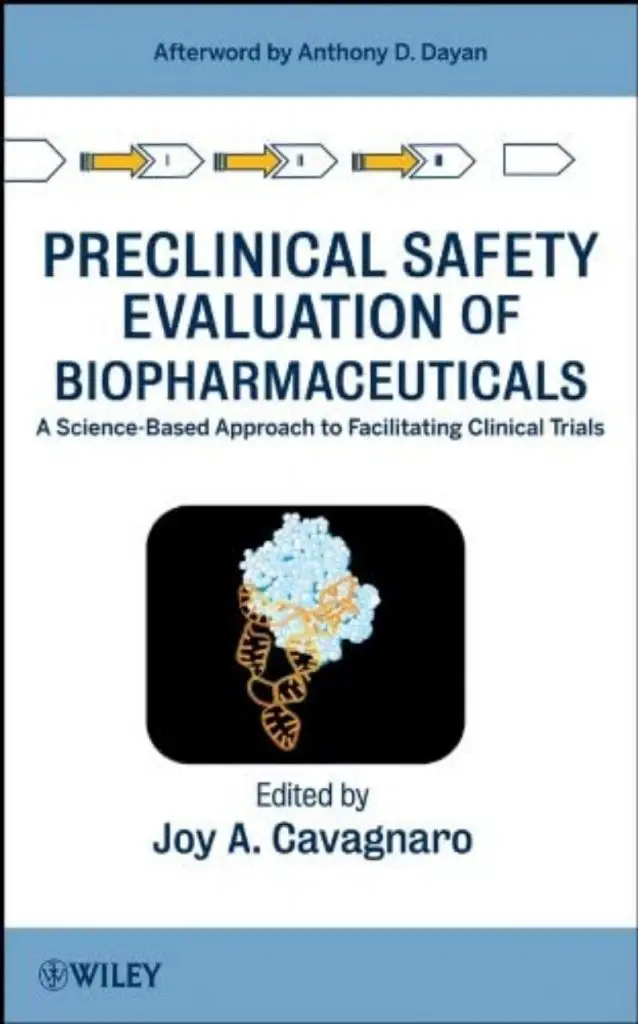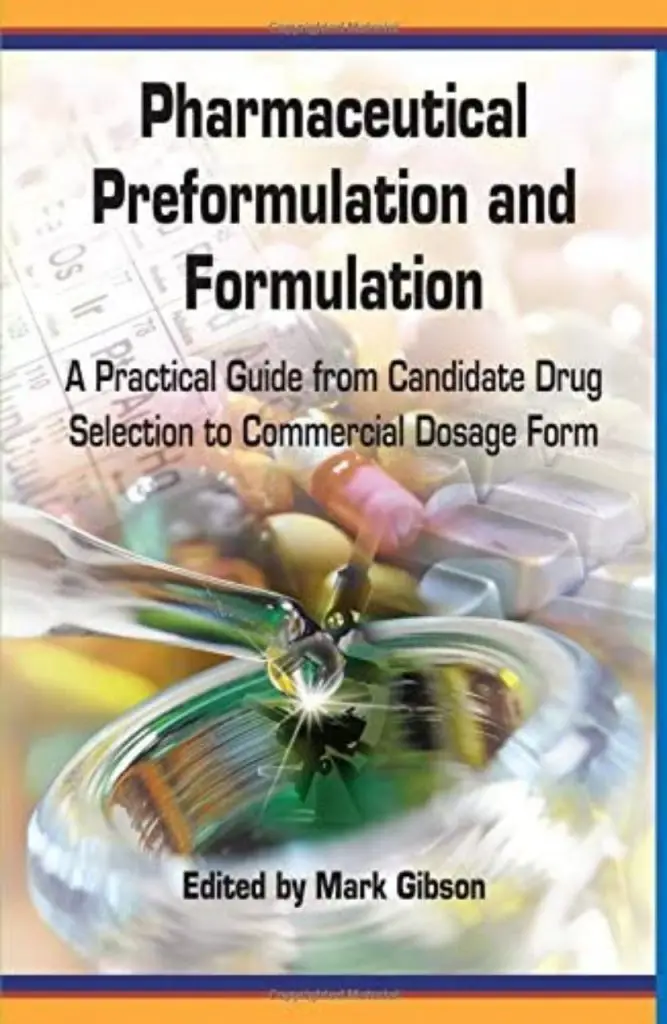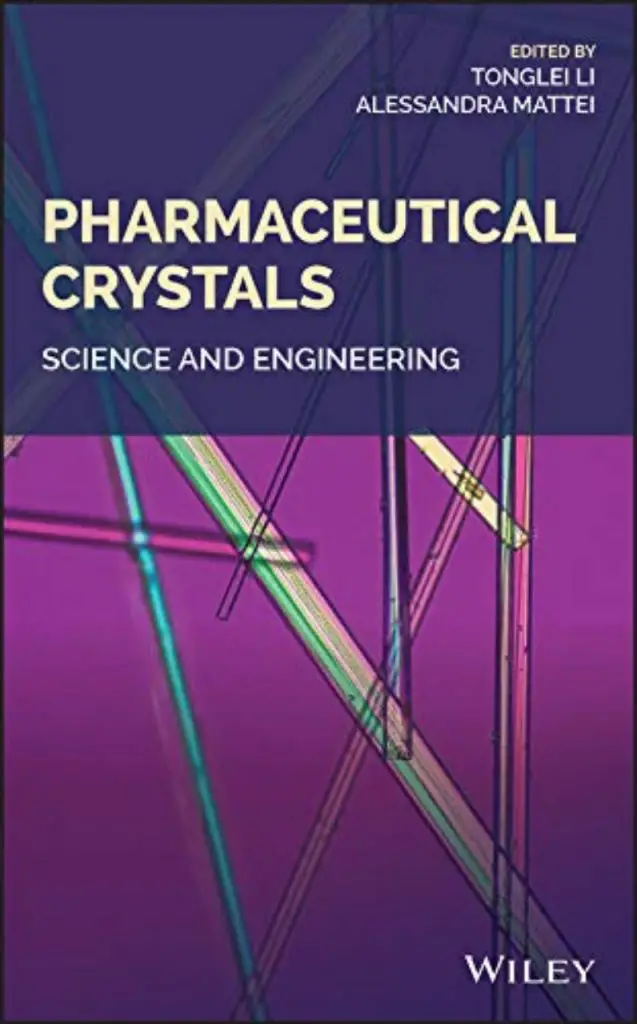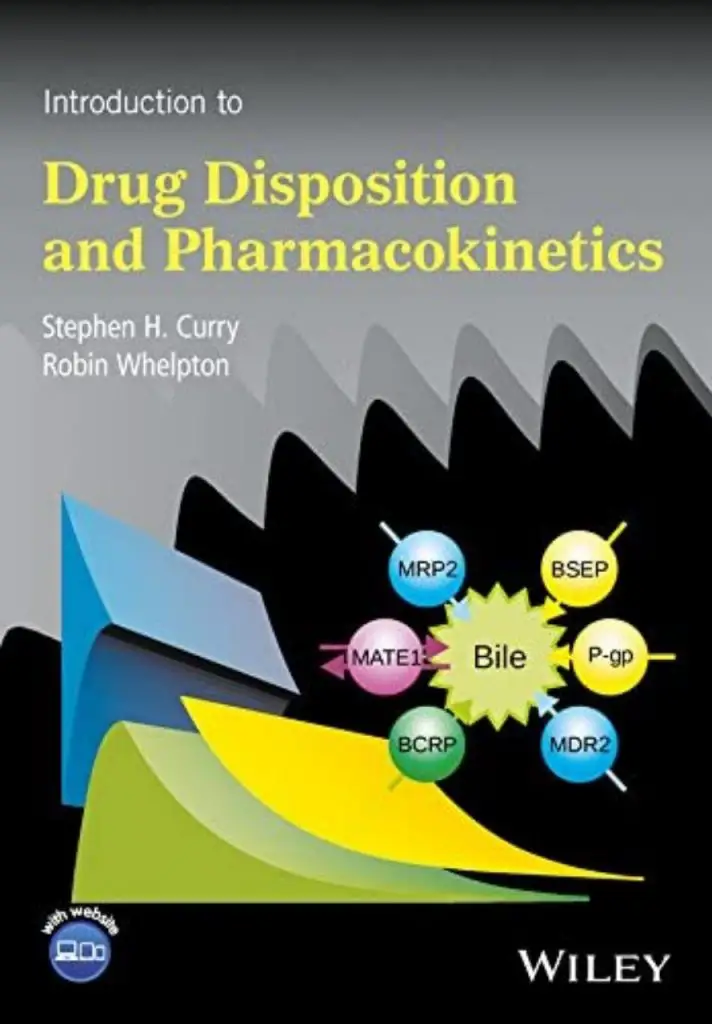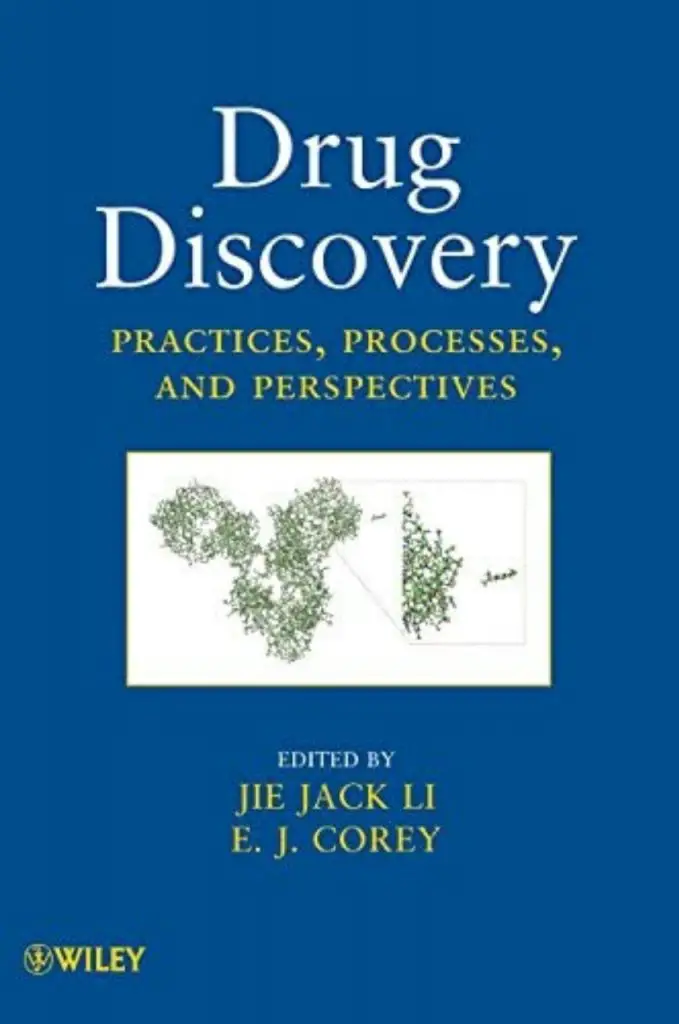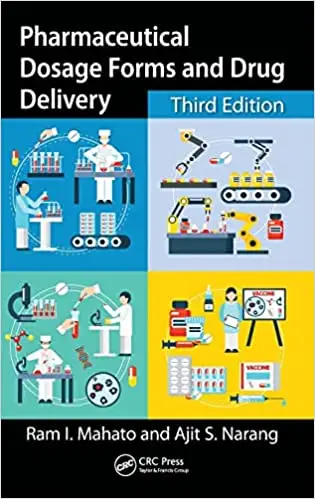Ever wondered what the must-read pharmacology, toxicology, and pharmaceutics books are? Here is our take.
Our top picks in this category include highly reviewed and recommended books and online textbooks that will help you get a deeper look into concepts.
These books are a product of thorough research—our staff picked books written by Nobel Prize winners and approved by the American Pharmacists Association.
Our article will provide you with a list of the best books for pharmacology, toxicology, and pharmaceutics students.
This list helps you generate ideas whether you are a researcher looking for a breakthrough idea, a student looking for textbooks to get a headstart, or a layperson looking to learn broadly.
You’ll learn more about drug monographs, and other important concepts covered in these books.
Let’s start!
Table of Contents
List of the Best Books
Part I: Best Pharmacology Books
- The Pharmacological Basis of Therapeutics [Get the book]
- Pharmacology for Chemists by Joseph Cannon [Get the book]
- A Pharmacology Primer [Get the book]
- Affinity and Efficacy [Get the book]
- Pharmacology in Drug Discovery [Get the book]
Part II: Best Toxicology Books
- Casarett & Doull’s Toxicology [Get the book]
- Hayes’ Principles and Methods of Toxicology [Get the book]
- Handbook of Toxicologic Pathology [Get the book]
- A Comprehensive Guide to Toxicology [Get the book]
- Preclinical Safety Evaluation of Biopharmaceuticals [Get the book]
Part III: Best Pharmaceutics Books
- Pharmaceutical Preformulation and Formulation [Get the book]
- Pharmaceutical Crystals: Science and Engineering [Get the book]
- Introduction to Drug Disposition and Pharmacokinetics [Get the book]
- Drug Discovery: Practices, Processes, and Perspectives [Get the book]
- Pharmaceutical Dosage Forms and Drug Delivery [Get the book]
Part I: Best Pharmacology Books
Goodman and Gilman’s The Pharmacological Basis of Therapeutics by Laurence Brunton, Bjorn Knollmann, and Randa Hilal-Dandan
Intro-Why you should read it
Goodman and Gilman’s “The Pharmacological Basis of Therapeutics” is the best book to read if you want to learn about drugs key to the prevention, diagnosis, and treatment of diseases.
Summary-What this book is about
The 13th Edition features contributions from more than 30 new contributors, focusing on the basic principles.
This book briefly explores the therapeutic agents, describing how they relate to pathophysiology and physiology.
Goodman-Gilman’s book contains over 500 illustrations relevant to the study of drug action.
Key Takeaways
- The latest versions provide in-depth coverage of myocardial ischemia, heart failure, cardiovascular disease, and hypertension.
- The book gives more priority to cellular signaling pathways key to drug action.
- Goodman-Gilman’s text is an essential pharmacology book due to its well-put discussion of the general pharmacological principles.
Pharmacology for Chemists by Joseph Cannon
Intro-Why you should read it
You don’t need prior knowledge of pharmacology, physiology, or other biological sciences to understand the basic pharmacology principles discussed by Cannon
Summary-What this book is about
Pharmacology for Chemists starts with an emphasis on concepts and principles of pharmacology. The second part of the book shows how you can apply the principles of medicinal chemistry.
Key Takeaways
- This text is a preparatory tool for further in-depth reading on the topic.
- The book covers key biological principles necessary across biological fields.
A Pharmacology Primer: Techniques for More Effective and Strategic Drug Discovery by Terry Kenakin
Intro-Why you should read it
We recommend this text as one of the best textbooks for university courses because of its free-flowing prose, simple publication language, and positive ratings.
A Pharmacology Primer: Techniques for More Effective and Strategic Drug Discovery is your go-to reference material for medical students looking for in-depth information on drug discovery, drug interactions, drug therapy, and more.
Summary-What this book is about
This book is up-to-date with ideas centering on the importance of clinical pharmacology in drug discovery.
The edition of A Pharmacology Primer gives you access to color illustrations, practical examples, and practice exercises relevant to the study of drug design, drug development, screening, and other key aspects of drug discovery.
Key Takeaways
- This comprehensive reference material features the essential advances in drug discovery, making it a good read.
- Be a good planner. Your ability to plan ahead of time when assisting in your career
Affinity and Efficacy: The Components of Drug-Receptor Interactions by Frederick Ehlert
Intro-Why you should read it
This book focuses on drug-receptor interaction by demonstrating how the analysis of receptor activity helps calculate the affinity and efficacy of drugs.
Summary-What this book is about
Affinity and Efficacy give you access to radioligand binding, competitive antagonism, agonist bias, inverse agonism, G proteins, ligand-gated ion channels, G-protein coupled receptors, and more.
Key Takeaways
- This text offers a deep knowledge of medical pharmacology.
- Critical thinking is a good skill in pharmacology.
Pharmacology in Drug Discovery: Understanding Drug Response by Terry Kenakin
Intro-Why you should read it
Pharmacology in Drug Discovery boasts impressive scientific research findings, making it one of the best pharmacology and toxicology books for students and graduates.
Summary-What this book is about
The book contains pages of well-written information that will help you understand the adverse effects of chemical substances on physiology.
Pharmacology in Drug Discovery is an invaluable tool in drug discovery–anticancer drugs and related drugs. The book equips readers with the knowledge necessary to predict drug effects in different physiological systems.
Key Takeaways
- A single drug has distinct effects when used in diverse physiological systems.
- Chapter summaries, key terminology, and practice questions offer a good learning experience for readers.
Part II: Best Toxicology Books
Casarett & Doull’s Toxicology: The Basic Science of Poisons by Curtis Klaassen
Intro-Why you should read it
We recommend this book to students because of its detailed overview of modern toxicology and mechanisms that are important in the study of toxicology.
Summary-What this book is about
Casarett & Doull’s Toxicology: The Basic Science of Poisons highlights key concepts, principles, chemical toxicity, and ideas that form the basis of toxicology.
The comprehensive classic gives you access to an up-to-date and in-depth board review of toxic substances while giving you a concise breakdown of the toxicology components.
This book covers environmental toxicology, general principles, applications, toxicity, and toxicants.
Key Takeaways
- Casarett and Doull’s book boasts an extensive coverage of the significance of autophagy, apoptosis, cytokines, oncogenes, growth factors, gene regulation, cell cycling, protective mechanisms, receptors, genomics, epigenetics, proteomics, and exposome.
- The contributions of new professionals make this book a comprehensive reference to toxicology.
Hayes’ Principles and Methods of Toxicology by Walles Hayes and Claire Kruger
Intro-Why you should read it
Hayes’ Principles and Methods of Toxicology features thoroughly researched and updated content, making it one of the best toxicology books for medical students.
Summary-What this book is about
The methodologies, assessments, and concepts make it a timely reference to toxicology.
Hayes’ Principles and Methods of Toxicology has revised information about the key principles of this complex subject.
The book contains everything you will need to understand toxicity and its hazards, and it underscores changes in toxicology.
Wallace Haye’s book starts with toxicology fundamentals, where the book highlights agents that cause toxicity.
The contributors proceed to discuss the methods of measuring toxicity in the environment, body systems, genetics, and carcinogenicity.
Hayes’ Principles and Methods of Toxicology, 6th edition, covers additional topics in neurotoxicology, food safety, the central nervous system, dose-response, and more.
Key Takeaways
- Assess the risks before indulging in something.
- Take your dose seriously because dosage matters. If you abuse your dose, you are likely to have unexpected results.
- The effects of toxicity are different from one person to the next because people differ.
- Timing is important in every undertaking.
Haschek and Rousseaux’s Handbook of Toxicologic Pathology by Wanda Haschek, Colin Rousseaux, Matthew Wallig, Brad Bolon, and Richard Ochoa
Intro-Why you should read it
We recommend this book to students for its authoritative coverage of toxicologic pathology.
Written by Matthew Wallig, et al, Haschek and Rousseaux’s Handbook of Toxicologic Pathology discusses tissue changes in response to chemicals, pharmaceuticals, and biologics.
Summary-What this book is about
The current edition contains additional knowledge on safety assessment unseen in the previous versions.
In its third edition, this book covers new topics in the life cycle of drugs, safety assessment, risk assessment, management and communication, pharmacokinetics, pharmacodynamics, pharmacology, quality assurance, carcinogenicity assessment, agrochemicals, and more.
Key Takeaways
- This edition features new safety examination principles that you should have when dealing with drugs.
- Chemicals cause changes in body organs and tissues.
A Comprehensive Guide to Toxicology in Nonclinical Drug Development by Ali Faqi
Intro-Why you should read it
Ali Faqi designed A Comprehensive Guide to Toxicology in Nonclinical Drug Development for students looking for an in-depth discussion of the aspects that influence biologics and small molecules.
Summary-What this book is about
This new version now focuses on additional topics, including stem cells, dermal and inhalation toxicology, drawbacks to drug development, biomarkers, and more.
A Comprehensive Guide to Toxicology in Nonclinical Drug Development reflects the most recent advances in science.
Key Takeaways
- Toxicologists dealing with nonclinical testing will find this book invaluable.
- Nonclinical toxicology is a section that equips learners with extra information on this discipline.
Preclinical Safety Evaluation of Biopharmaceuticals: A Science-Based Approach to Facilitating Clinical Trials by Joy Cavagnaro
Intro-Why you should read it
The Science Website is one of the best book review sites that recommend Joy Cavagnaro’s version of Preclinical Safety Evaluation of Biopharmaceuticals to students and practitioners in the biopharmaceutical development sector.
Summary-What this book is about
This book discusses a wide range of topics, including pharmaceutical production, toxicity testing, and selection of doses.
Key Takeaways
- It covers ICH S6 principles and their application in Europe, Japan, and the US.
- It covers safety assessments for biopharmaceuticals and small molecules.
Part III: Best Pharmaceutics Books
Pharmaceutical Preformulation and Formulation: A Practical Guide from Candidate Drug Selection to Commercial Dosage Forms by Mark Gibson
Intro-Why you should read it
Students studying industrial pharmacy or pharmaceutical technology may love the depth of knowledge within this book.
Practitioners dealing with pharmaceuticals may also enjoy reading this reference guide.
Summary-What this book is about
Gibson’s book highlights the pressure on companies to hasten the launch and drug development processes and turn them into biopharmaceuticals.
The book contains relevant information and explores recent trends in the pharmaceutical industry.
Pharmaceutical Preformulation and Formulation: A Practical Guide from Candidate Drug Selection to Commercial Dosage Form covers candidate drug selection, drug development, discovery, etc.
Key Takeaways
- Be up-to-date with the technological advancements in the pharmaceutical industry.
- Be a thinker and a doer. Scientists are problem solvers. That’s what you are.
Pharmaceutical Crystals: Science and Engineering by Tonglei Li and Alessandra Mattei
Intro-Why you should read it
Top review sites, including BookAuthority, recommend this book to students studying pharmaceutical technology.
This important resource focuses on comprehending organic crystals in drug development.
Summary-What this book is about
Pharmaceutical Crystals: Science and Engineering provide a concise introduction to drug development’s key factors.
Besides offering extensive coverage of organic crystals, this book also discusses their roles in clinical drug development.
Key Takeaways
- The knowledge of organic crystals is key to understanding drug development.
- This book provides in-depth information on factors that affect the process of clinical drug development.
Introduction to Drug Disposition and Pharmacokinetics by Stephen Curry and Robin Whelpton
Intro-Why you should read it
Best book review sites such as BookAuthority recommend this Drug Disposition and Pharmacokinetics to students studying pharmacology, pharmacy, medicine, veterinary science, and biomedical sciences.
Practitioners dealing with drug discovery and development, medicinal and pharmaceutical chemists, forensic scientists, and toxicologists will also appreciate the depth of this book.
Summary-What this book is about
This book begins with basic concepts and proceeds into more complex scientific and clinical research necessary to perform pharmacokinetic calculations.
Key Takeaways
- Drug disposition is essential in pharmacy, veterinary science, medicine, and related fields.
- Be ready to adapt to different content areas. The book begins with simple concepts, gradually building on them to more complicated ones.
Drug Discovery: Practices, Processes, and Perspectives by Jie Zhao J. Corey and Jack Li
Intro-Why you should read it
Edited by two pioneers in medicinal chemistry and drug discovery, this book underscores memorable historical moments and discusses science today and the future of drug discovery.
Summary-What this book is about
Drug Discovery brings readers up to speed with the phases and aspects of the drug discovery discipline.
The book covers target selection, drug metabolism, biological testing, and computer-aided drug design.
Key Takeaways
- Learn as much as you can, then apply the knowledge you acquire in everyday life.
- Be a problem-solver rather than a quitter.
- Learn to master the processes of discovery.
Pharmaceutical Dosage Forms and Drug Delivery by Ram Mahato and Ajit Narang
Intro-Why you should read it
Pharmaceutical Dosage Forms and Drug Delivery offers an overview of pharmaceutics while providing crucial information to instructors, students, and professionals.
BookAuthority is one of the book review sites that recommend Pharmaceutical Dosage Forms and Drug Delivery to students studying pharmaceutical sciences and medicinal chemistry.
Summary-What this book is about
This book combines the aspects of biopharmaceuticals, physical pharmacy, biotechnology, and drug delivery with a focus on recent advances in dosage form design, drug delivery, nanotechnology, and gene therapy.
Key Takeaways
- It’s the simple things that matter in life. Pay attention to every idea, concept, or skill.
- Negligence has no place in drug delivery and other medical fields.
Conclusion
Our top picks in this category include highly reviewed and recommended books and online textbooks that will help you get a deeper look into concepts.
We hope this article has been helpful.
References
Pharmacology Books
[1] https://www.science.org/content/blog-post/medicinal-chemistry-books-20
[2] https://libguides.tulane.edu/pharm
Toxicology
[1] https://www.science.org/content/blog-post/medicinal-chemistry-books-20
[2] https://www.intechopen.com/subjects/19
Pharmaceutics
[1] https://www.science.org/content/blog-post/medicinal-chemistry-books-20


